Premium Only Content
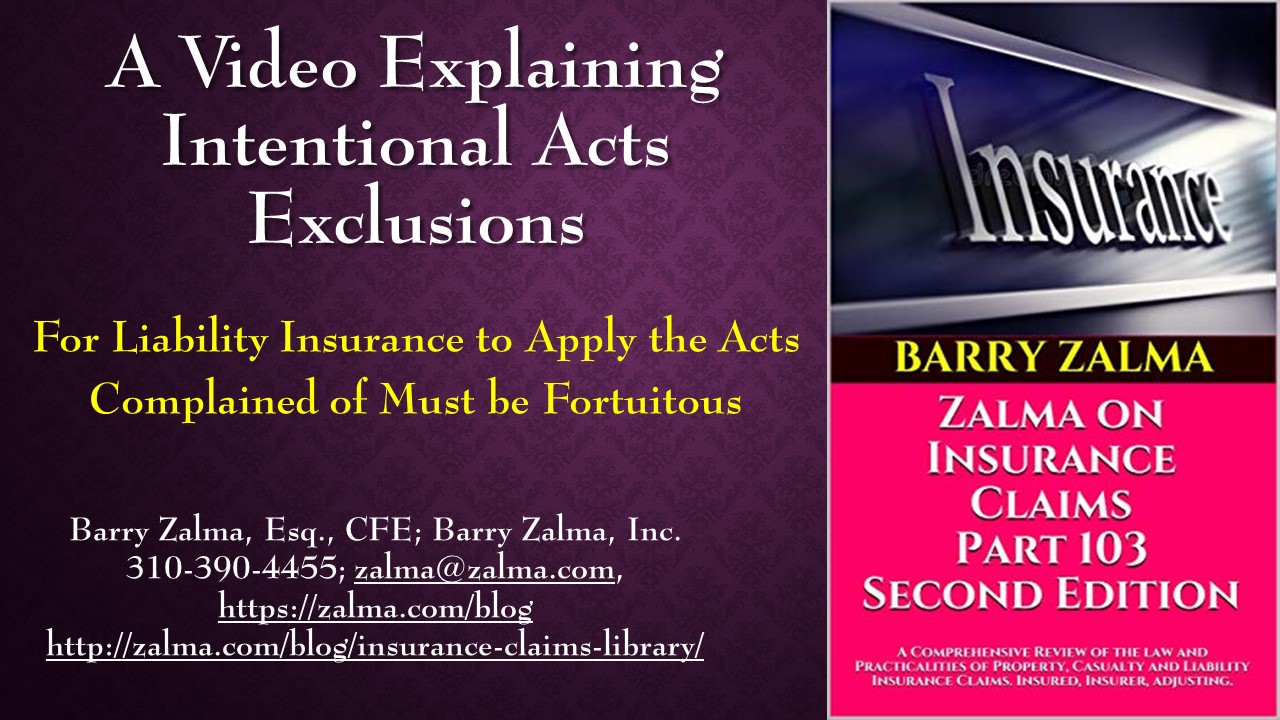
A Video Explaining Intentional Acts Exclusions
Intentional Acts
In Automobile Insurance Co. of Hartford v. Cook, the court was faced with the legal question of whether an individual’s homeowner’s insurance policy affords coverage when that individual is sued for wrongful death after killing a person in self-defense. On February 20, 2002, defendant Alfred S. Cook shot and killed Richard A. Barber, the decedent, after a disagreement over a business arrangement spun out of control. The decedent had entered Cook’s home without permission. During their discussions, Cook, armed with a handgun, retreated to his bedroom to retrieve a 12-gauge shotgun and then returned to the living room, where the fatal confrontation occurred.
Cook was indicted for a number of crimes, including murder in the second degree, stood trial, and was acquitted on all counts of the indictment. The jury concluded in the criminal case that the prosecution failed to prove beyond a reasonable doubt that the 120-pound Cook did not have legal justification for shooting the 360‑pound decedent, who had previously attacked and injured Cook after he refused to leave Cook’s home.
Finding no coverage, the majority held there was no possible interpretation other than that the acts were intentional.
In a case where “the policy language does not refer to an intentional act but, rather, contains an exclusion that applies to ‘assault and/or battery committed by any insured * * * or any other person.’ Application of the exclusion does not depend upon the perpetrator's mental state or whether [injured person] was the intended victim.” When the perpetrator was convicted of battery on the claimant the exclusion applies regardless of the perpetrator’s mental state.
In 1978, the California Supreme Court in Clemmer v. Hartford Insurance Co.71 dealt with a shooting that resulted in the death of the victim. Regardless, it still led to a finding by the Supreme Court of California of a need for defense and indemnity. The court concluded that Hartford had no duties with regard to Dr. Lovelace’s intentional acts in the killing of Dr. Clemmer but was obligated to defend him. If there was a finding of nonintentional conduct in the shooting, however, it would be obligated to defend and its refusal to do so was wrongful.
-
 13:02
13:02
Barry Zalma, Inc. on Insurance Law
1 year agoMurder Pays
3581 -
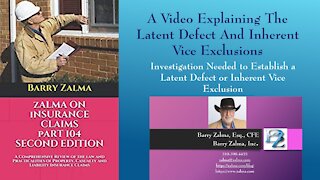 11:12
11:12
Barry Zalma, Inc. on Insurance Law
4 years agoA Video Explaining the Latent Defect and Inherent Vice Exclusions
23 -
 15:11
15:11
Barry Zalma, Inc. on Insurance Law
4 years agoA Video Explaining Exclusions for Inherent Vice, Latent Defects and Wear and Tear
78 -
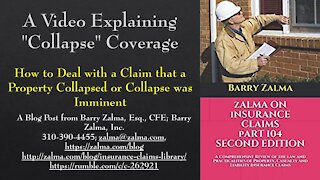 17:01
17:01
Barry Zalma, Inc. on Insurance Law
4 years agoA Video Explaining "Collapse" Coverage
160 -
 7:58
7:58
Barry Zalma, Inc. on Insurance Law
4 years agoA Video Explaining Some Advertising Injury Coverage
94 -
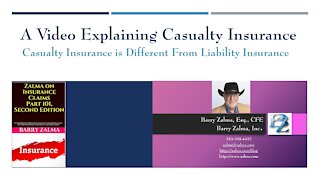 16:42
16:42
Barry Zalma, Inc. on Insurance Law
4 years agoA Video Explaining Casualty Insurance
76 -
 14:15
14:15
Barry Zalma, Inc. on Insurance Law
4 years agoA Video Explaining the Statutes of Repose
137 -
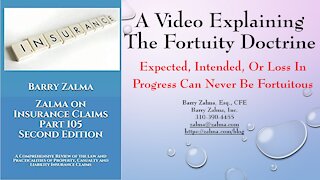 21:18
21:18
Barry Zalma, Inc. on Insurance Law
4 years agoA Video Explaining The Fortuity Doctrine
27 -
 16:33
16:33
Barry Zalma, Inc. on Insurance Law
4 years agoA Video Explaining the Unethical Insured
16 -
 18:20
18:20
Barry Zalma, Inc. on Insurance Law
4 years agoA Video Explaining the Controls on Punitive Damages
86